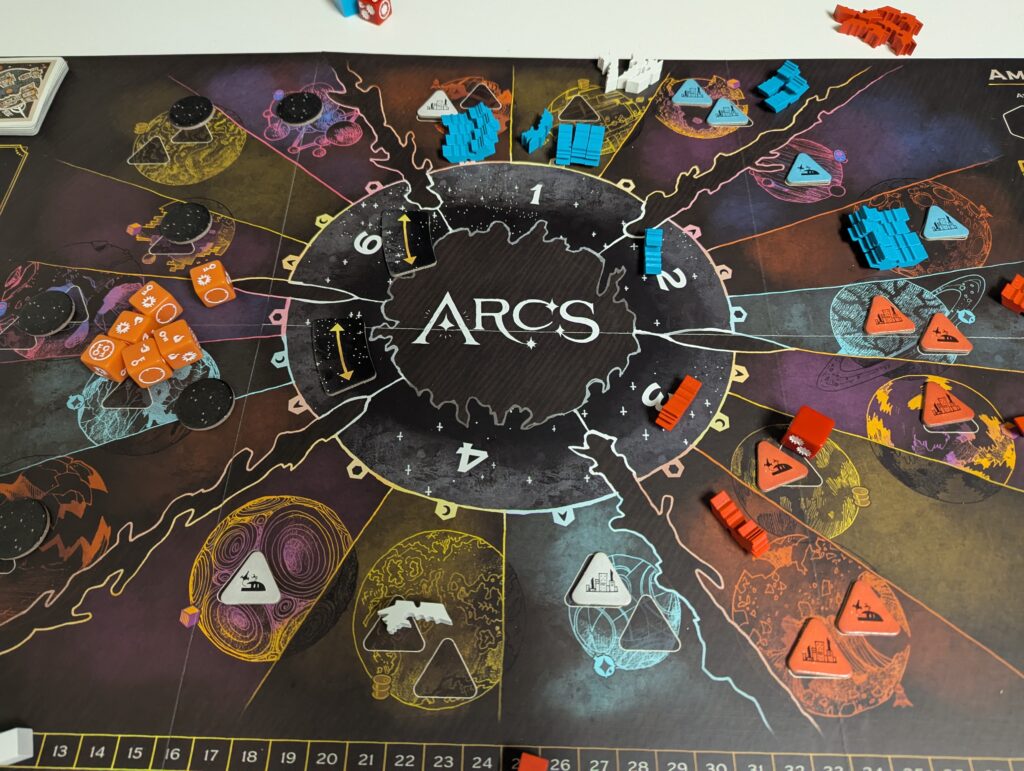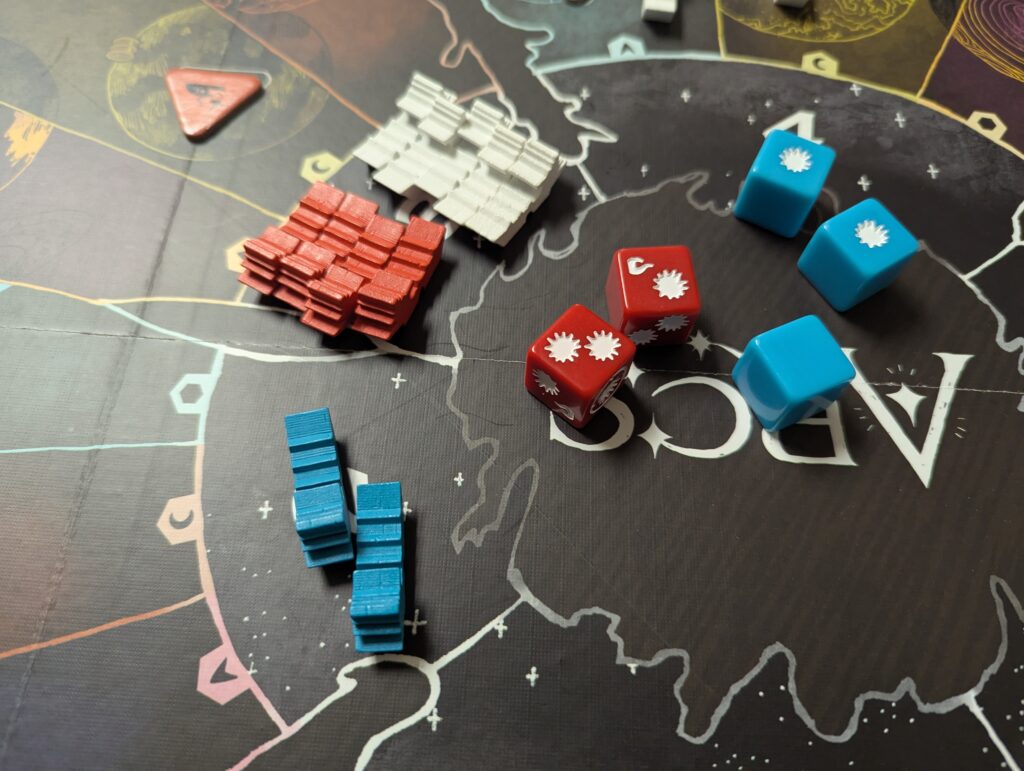
Space. A lot of games use it as their setting to inspire players and make them feel like heroes, explorers, or conquerors. Many tap into existing movies and books but a few try to create their own lore and history to entice and intrigue and give players a sense of being part of a grand narrative. Leder Games’ ARCS does something different. It eschews specificity and lore for abstraction and ambiguity. When you pick a player color and board, you are not picking a species with reams of backstory. When you draw cards to enhance your galactic empire, you’re invited not to be part of an established story but instead to imagine and invent on the spot. What does it mean to you that you secured the loyalty of the Mining Guild or that your fleet arrived at a planet full of weapons? This is not Star Wars where you have preconceived notions of what it means to go gallivanting off to Tattooine. Planets don’t have names. Nothing does. And in thar blank space, you are free to imagine and invent or just focus on the game.
Leder above all else understands that what they make are games. As someone who is a sucker for themes and experiences, it can be quite a splash of cold water to be presented with something like ARCS that focuses so much on the Games-iness of their games and trusts players to bring their own imagination to fill in the blanks. Part of their confidence can come down to how well they design games and also how skilled and evocative their art is. There’s just enough sci-fi on the cards and board to make the sandbox you’re playing in feel alive and vibrant without overpowering the experience.
ARCS has you chasing down victory points by fulfilling Ambitions that change throughout the game and is determined by the players. At the start, everyone might be trying to hoard fuel or hunt down relics but soon it might be more valuable to blow up ships or conquer your neighbors. The uncertainty of what will earn you points at any given time means that players need to be flexible enough to jump on opportunities but also know that at any time they can grab the reigns and determine the fate of the galaxy. Initiative is a huge part of this game and you can sacrifice a great deal to take it.
Most of the gameplay of ARCS is a deceptively simple suits-based card game where whoever has initiative plays a card that allows certain actions like taxing, moving, building, or attacking and everyone else has to decide whether to follow suit and do the same sort of actions or play cards to do something else but usually not as well. In addition, you’ll be taxing or stealing resources and claiming cards that give you options for ways to enhance your power and strategy but almost always at a cost. Every decision has a sense of weight. Do you burn a card to seize initiative so you can decide which Ambition will earn points or do you let your rivals exhaust themselves? Do you go all in on smashing your fleets into their points-scoring planets or hold back and let your rivals duke it out so you can sneak around the edges and outscore them while they’re rebuilding? Even combat has you decide whether to roll safe but ineffective dice or dangerous but exciting ones.

It can be a very brutal game and players can see their hard earned fleets turned to so much debris or see cards and resources they schemed to acquire purloined by rivals but luckily it moves fast and there are always opportunities for revenge. Despite space being so large, players can very quickly find themselves bumping into one another and getting into all sorts of scrapes. Going after planets is a great way to take your neighbor’s stuff but if things get out of hand and you blow up one of their cities, you provoke Outrage and have to deal with the fallout of being a brutal warlord both mechanically and emotionally.
Despite having a simple structure, every game of ARCS is a novel experience due to just how much weight it puts on player decisions with just enough randomness to keep things largely unpredictable. The base game comes with a handful of optional cards that give your faction some powers and limitations but they are just as evocatively non-specific as the rest of the game. Leder also offers a campaign game to play which I’ve yet to explore but it apparently takes the base game and launches it even further into the cosmic aether.
